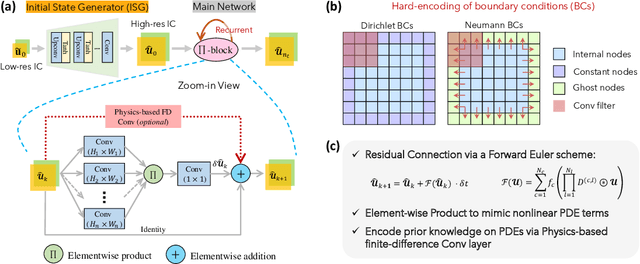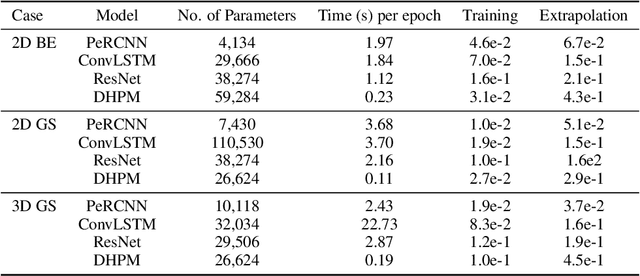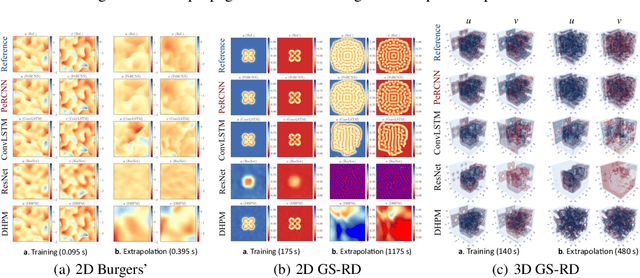Embedding Physics to Learn Spatiotemporal Dynamics from Sparse Data
Paper and Code
Jun 09, 2021



Modeling nonlinear spatiotemporal dynamical systems has primarily relied on partial differential equations (PDEs) that are typically derived from first principles. However, the explicit formulation of PDEs for many underexplored processes, such as climate systems, biochemical reaction and epidemiology, remains uncertain or partially unknown, where very sparse measurement data is yet available. To tackle this challenge, we propose a novel deep learning architecture that forcibly embedded known physics knowledge in a residual-recurrent $\Pi$-block network, to facilitate the learning of the spatiotemporal dynamics in a data-driven manner. The coercive embedding mechanism of physics, fundamentally different from physics-informed neural networks based on loss penalty, ensures the network to rigorously obey given physics. Numerical experiments demonstrate that the resulting learning paradigm that embeds physics possesses remarkable accuracy, robustness, interpretability and generalizability for learning spatiotemporal dynamics.
 Add to Chrome
Add to Chrome Add to Firefox
Add to Firefox Add to Edge
Add to Edge